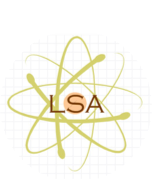"Fractional Differential Equations" (Isaac Newton Institute of Mathematical Sciences, Cambridge University)
The international conference "Fractional Differential Equations" (Isaac Newton Institute of Mathematical Sciences, Cambridge University) was held from January 4, 2022 to April 29, 2022.
The international conference "Fractional Differential Equations" (Isaac Newton Institute of Mathematical Sciences, Cambridge University) was held from January 4, 2022 to April 29, 2022. The Isaac Newton Institute is an international research institute for mathematics and its many applications at the University of Cambridge. It is named after one of the most prominent figures of the university, mathematician and natural philosopher Sir Isaac Newton, and occupies one of the buildings of the Cambridge Center for Mathematical Sciences.
Programme theme
Modelling based on differential equations of fractional order and related heavy-tailed probability distributions has recently witnessed a surge of interest due to their ability to model complex phenomena. Applications include modelling contamination of groundwater flow, the electrical dynamics of the heart and the design of new materials. Fractional differential equations capture effects going well beyond the range tractable by conventional concepts and tools, and it is increasingly recognised that this framework is on the way of becoming a new paradigm in scientific modelling. This programme sets out to investigate the multiple facets of space-time fractional dynamics and make significant progress in the description and deep understanding of this new phenomenology.
A common feature of the problems the programme aims to address is space-time non-locality. In a mathematical formulation, spatial non-locality means that the evaluation of the action of an operator on a function at a particular point in space generally depends also on its effect in far-away positions. A typical example is the fractional Laplacian, however, we will consider a whole range of possible non-local operators, which generally may have different qualitative behaviours. Temporal non-locality means that the future evolution depends on its past, which is described in terms of fractional (such as Caputo) time-derivatives.
Who made a report:
1. Kolokoltsov V.N. with the report «Probabilistic representation for the solutions of generalized fractional equations and generalized operator-valued Mittag-Leffler functions», January 25, 2022.
2. Kelbert M.Ya. with a report "On the mixed problem of singular/switching control with multiple modes", April 4, 2022.
3. Molchanov S. A. with the following reports:
- «Random Schrödinger operator on fractals», 28 February 2022;
- «Population dynamics and black spots on the Sun», 5 April 2022;
- «Spectral Theory on the Fractals I», 7 April 2022;
- «Spectral Theory on the Fractals II», 11 April 2022;
- «Spectral Theory on the Fractals III», 12 April 2022;
- «Spectral Theory on the Fractals IV», 14 April 2022;
- «Spectral Theory on the Fractals V», 26 April 2022.
Organizers:
- Vassili Kolokoltsov University of Warwick
- Jozsef Lörinczi Alfréd Rényi Institute of Mathematics,Hungarian Academy of Sciences
- Eulalia Nualart Universitat Pompeu Fabra
- Michael Roeckner Universität Bielefeld
- Laura Sacerdote University of Torino

